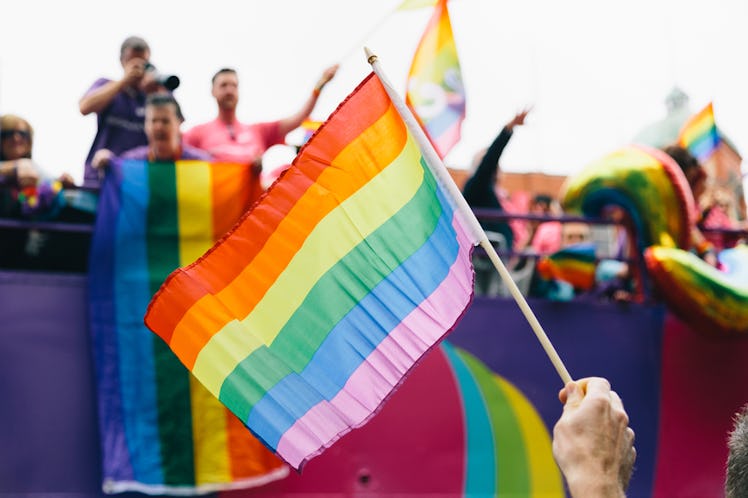
Why It's Completely Normal If You Aren't Sure What Label Best Fits Your Sexuality
Growing up in the 1990s and 2000s, I didn't really see too many mainstream young adults and teens in media who were out as queer. Ellen DeGeneres didn't come out until 1997, and by then, she was nearly 40 years old. Thankfully, these days, there's much more widespread knowledge about how sexuality is a fluid spectrum, and that's amazing. But that does make it potentially harder to pinpoint exactly what your sexuality is. If you don't know what your sexuality is, know that this more common than you think.
I know when I was trying to figure all this out in college, my biggest obstacle with my sexuality was trying to figure out what my label was. Bisexual? Pansexual? Go broad and use queer? "Queer" made me feel most comfortable at first because it meant I didn't have to define my non-straightness and pinpoint it in words. Then, I found more solace in using "pansexual" because it encapsulated the realization that my attraction was to anyone, and gender didn't play as much of a role. But identifying as pansexual comes with the string attached of usually having to explain to people what it means, so sometimes I just want to say I'm bi. Oh, the struggle is real.
Some people stray from sticking to a label – maybe because of the rigidness a label can make you feel (even though you can change your label at any moment you want!) – and that's legit totally OK.
I spoke with Rena McDaniel, a gender and sex therapist, about how not knowing how to label your sexuality is 100 percent normal.
"The thing about labels is that their usefulness and power lies in getting to decide what those labels are for yourself," McDaniel tells Elite Daily. "When others apply labels to you, the intention is to put you in a box of some sort. It feels confining and is someone telling you who you are without your consent. When you apply a label to yourself, it can be a source of power that connects you to a broader community of people with similar labels and experiences."
In recent years, celebrities including Demi Lovato and Shay Mitchell have refused to publicly label their sexuality. That doesn't necessarily mean they don't know who they're attracted to. It could mean that they want a more fluid interpretation of how they perceive attraction and love. If you skip labeling yourself, you're never restricted.
"People always ask me, 'You play a gay character? Are you gay? Are you straight? Are you this? Are you that?'" Mitchell told Maxim in August 2017. "Look, Emily [Mitchell's Pretty Little Liars character] doesn't label herself, and I don't label myself either. I fall in love with the spirit of somebody. Love is love, and that's something that I'll keep saying."
Lovato also takes a similar approach to sexuality.
"I'm very fluid, and I think love is love,” Lovato told InTouch this month. “You can find it in any gender. I like the freedom of being able to flirt with whoever I want."
McDaniel explains, "I imagine these celebrities, who get labeled by others in the media so often, don't want to feel boxed into a label without their consent."
But sometimes finding a label that you identify with helps you find other people who identify that way – not just for romantic pursuits, but also as a support system.
"When you apply a label to yourself, it can be a source of power that connects you to a broader community of people with similar labels and experiences," says McDaniel. "When you look at labels from a queer theory perspective, applying a label to yourself does not mean that label cannot evolve and change as you grow as a person. Sexuality is rarely black and white and is rarely static."
Whether you want to choose a label for your sexuality or not, know that there are resources to support you if you're questioning. Check out GLAAD's numerous resources page for a topic you may need to discuss. Or, if you want more one-on-one time, seek out a therapist that specializes in sex and gender, like McDaniel does.